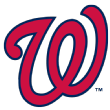Better than any of their peers, the good folks who run the Minnesota Twins' front office have demonstrated how wrenching the decision to buy or sell can be. A year ago, they decided to be buyers, completing a trade for Jaime Garcia at a time when the Twins were 3½ games out of first place.
The Twins promptly went on a mini-losing streak and by July 30 -- just six days later -- Minnesota was seven games out of first place. Immediately, the Twins became sellers, flipping Garcia to the Yankees after only one start. But down the stretch, the Twins' offense exploded, and Minnesota boat-raced its way into a playoff berth.
Reading a team's playoff chances can be like trying to forecast a window of good weather, because the conditions change constantly, through injuries, through the streaks and slumps of your team and those of your opponent -- and there are always other factors in play, specific to each franchise.
Right now, there appear to be five teams at the buy-or-sell tipping point.
 1. Pittsburgh Pirates, 53-49. Playoff chances: 19.5 percent
1. Pittsburgh Pirates, 53-49. Playoff chances: 19.5 percent
Two weeks ago, it appeared the Pirates would slog through a forgettable second half, with the standard sell-offs of players with free agency looming. But with their 9-4 win over the Indians on Tuesday, the Pirates have won 11 straight, drawing to within six games of first place and three games of the wild card.
Presumably, then, Pittsburgh will be looking for measured acquisitions to augment its roster by the trade deadline. Even if the Pirates lose a little ground in the next five days, the team's ownership probably needs to ride this out without selling, following last winter's tumultuous trades of Gerrit Cole and Andrew McCutchen. The team's average attendance has plummeted from a per-game average of 28,100 in 2016 to 18,100 this year, and to sell at any time this year would reinforce the perception of some Pirates fans that ownership is not invested in winning in the way it should be.
 2. San Francisco Giants, 52-50. Playoff chances: 13.8 percent
2. San Francisco Giants, 52-50. Playoff chances: 13.8 percent
They've been the definition of mediocre since Madison Bumgarner's return to the rotation, never winning more than four straight games or losing more than five straight. But they're still within 4½ games of the Dodgers in the NL West, and given their payroll of almost $200 million, it really doesn't make sense for them to try to execute a sell-off -- especially because they don't have tradable assets that are particularly attractive other than Bumgarner, and they've made it clear to other teams they are not trading the left-hander who is such a big part of their legacy. The enthusiasm of Giants fans has not really waned -- even as the team has struggled since the 2014 championship, San Francisco's attendance has continued to be solid, with a small drop from 40,700 per game last season to 38,800 in 2018.
 3. Washington Nationals, 49-51. Playoff chances: 45.2 percent
3. Washington Nationals, 49-51. Playoff chances: 45.2 percent
Those playoff odds from FanGraphs' statistical formula might seem unusually high, given Washington is now seven games out of first in the NL East and six games out in the race for the second wild card. But they seem to be a reflection of the potential excellence of the players on the roster. The Nationals have Max Scherzer, Bryce Harper, Anthony Rendon, Stephen Strasburg, Rookie of the Year candidate Juan Soto, Trea Turner, Daniel Murphy, etc., etc., etc.; any statistical evaluation would be sure to include the possibility that great players would get back to playing great.
But it has been a while since the Nationals played well. They have won only 12 of their past 37 games, and you can make an argument that Scherzer has almost single-handedly propped up the team: They're 15-6 in games he has started, 34-45 on all other days.
The Nationals would have the power to completely shake up the trade market by throwing Harper's name into the mix, in these last months before he reaches free agency, and they should probably go through the process of internally discussing the pros and cons of doing so. If the Nationals believe the chances of Harper being in Washington in 2019 and beyond are slim to none -- whether because of what they want or what they believe he wants, in venue and money -- they should listen. Maybe some contender would be surprisingly aggressive and give the Nationals a couple of really good prospects for a player who could be a pennant-race difference-maker.
But I doubt that would happen. It seems more likely the Nationals will bet on a rebound from their players -- and remember, Washington is chasing a couple of young teams in the Phillies and Braves that arrived earlier than expected.
 4. St. Louis Cardinals, 51-50. Playoff chances: 17 percent
4. St. Louis Cardinals, 51-50. Playoff chances: 17 percent
With the firing of manager Mike Matheny serving as the indicator of change, the Cardinals seem to be going through some kind of broader assessment about their team and their current mix of players. It has been a while since St. Louis played like a contender, and yet St. Louis fans continue to support the club -- its average attendance is about 42,300 this year, basically identical to the 42,500 the team drew in 2017. The Cardinals figure to move Jose Martinez to ease their glut of right-handed hitting outfielders, and would probably love to trade Dexter Fowler and his remaining salary. But the core of the team is its group of young starting pitchers and the Cardinals probably won't touch them.
If the Cardinals' front office devoted itself to buying before the deadline, they would have the same challenge faced by other teams: There aren't a lot of inspiring pieces available in the market right now.
 5. Minnesota Twins, 46-53. Playoff chances: 1.1 percent
5. Minnesota Twins, 46-53. Playoff chances: 1.1 percent
The decision before the Twins' executives seems easier than last year, with the Twins seven games under .500. Shortstop Eduardo Escobar and second baseman Brian Dozier are free agents after this season and could generate some return in a deal with the Brewers or some other contender.
Playoff percentages according to FanGraphs.com
